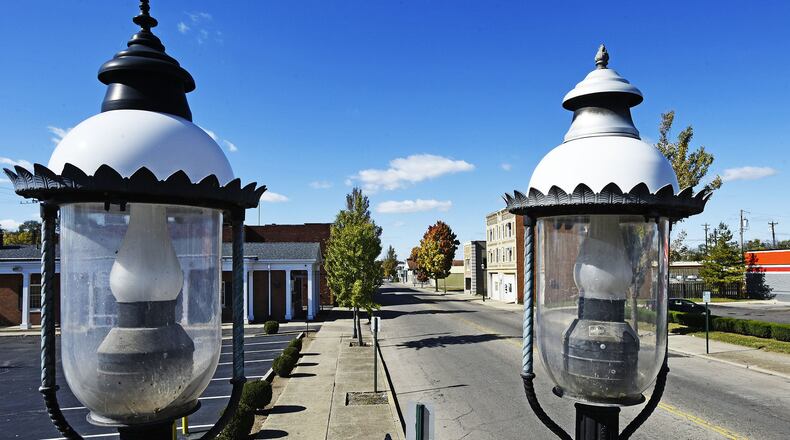And in Mayor Larry Mulligan Jr.’s State of the City speech in March, the mayor called streetlight assessments “a key element of the solution” for repairing the city’s streets.
“Council will be evaluating this in the coming months, and much needs to be considered for a fair and equitable assessment,” Mulligan added at the time.
Adkins did not place streetlight-assessments in his proposed 2017 budget and Mulligan said he has felt no push from his council colleagues on the streetlight issue.
Adkins in an email Monday to the Journal-News called the streetlight-assessment idea “something that was just a concept to be explored at some later date before 2020.”
The idea was to levy about a $3-per-month assessment on homes and businesses that would be used to pay the city’s street-lighting bills, which city government now pays to Duke Energy at a rate of about $750,000 per year. If residents and businesses were paying that amount, city government would be free to spend it on paving, Adkins explained.
By the year 2020, Adkins hopes city government will have enough extra revenue that it can pay for $3.59 million in paving. Adkins’ proposed 2017 budget includes $1.2 million for paving of local streets.
“I don’t know that we ever really had a plan to institute it,” Mulligan said. “We’ve talked about it off and on for years, as a way to offset that cost. But it’s just always been under consideration or evaluation. I don’t think anything’s a foregone conclusion, that we’re going to be doing it.”
Mulligan said when he mentioned in March that the council would be taking up the concept this year, “one of the reasons I put it in there was to get the dialogue going.”
“I think the response hasn’t been that strong, either, from Doug, that we need to do it, or from council, that we need to say, ‘Hey, let’s go forward.’ I just haven’t from anybody about it.”
Mulligan said some residents have pushed for the collections so paving could be done.
Adkins said via email one way the city is exploring cost-savings is to “convert our street lights to LED (light-emitting diodes),” the way Hamilton started doing over 10 years in 2015. “This has the potential to save several hundred thousand dollars a year in electric costs each year after we pay for the conversion,” he wrote.
“Saving money in street-light electric costs frees up the money currently being spent without having to charge our citizens,” Adkins added. “We will be exploring this (switch to LEDs) in 2017 and intend to move forward next year with this project.”
Council Member Talbott Moon said converting street lights to LED in the near future should lead to significant savings on electric costs.
“Those savings could be spent on other city priorities, with my preference being street paving,” he said, adding “I will need to see the financial implications of LED conversion before beginning any real discussion on an assessment.”
“I think it would be a good idea,” said resident Emma Ferrigan. “I think citizens definitely should be paying for street lights because how many wrecks have there been in Middletown? I would definitely do it next year.”
Debbie Egner, also a Middletown resident, also thought more spending on street repairs — even coming from her pocket — is a good idea: “They’re not real good at all,” she said of the roads. “There’s a whole lot to be done. Anything would help, I guess.”
Adkins said when he visited Kansas City for a national city manager conference, he learned that city is experimenting with motion sensors on street lights in quieter neighborhoods, which cut the lights to 50-percent power when there is no motion for 30 minutes.
Most communities charge for streetlight costs, Adkins wrote. But: “If economic development is going gangbusters, there may not be any need. If we are still looking for paving funds, some future council may want to consider the topic further. We have a lot of homework and projects to complete before this would even be considered a possibility.”
About the Author
